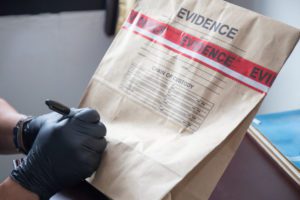 Justice Albin continued in relevant part: In a criminal case, the accused is guaranteed the effective assistance of counsel by the Sixth Amendment of the United States Constitution, Strickland v. Washington, 466 U.S. 668, 684-85 (1984), and Article I, Paragraph 10 of the New Jersey Constitution, State v. Fritz, 105 N.J. 42, 58 (1987). The test for determining whether counsel failed to provide the effective assistance required by the Federal and State Constitutions is set forth in Strickland and Fritz: first, a defendant must demonstrate that counsel’s representation was deficient — that counsel’s representation fell below an objective standard of reasonableness — and second, he must show a reasonable probability that the result of the proceeding would have been different but for counsel’s deficiencies.
Justice Albin continued in relevant part: In a criminal case, the accused is guaranteed the effective assistance of counsel by the Sixth Amendment of the United States Constitution, Strickland v. Washington, 466 U.S. 668, 684-85 (1984), and Article I, Paragraph 10 of the New Jersey Constitution, State v. Fritz, 105 N.J. 42, 58 (1987). The test for determining whether counsel failed to provide the effective assistance required by the Federal and State Constitutions is set forth in Strickland and Fritz: first, a defendant must demonstrate that counsel’s representation was deficient — that counsel’s representation fell below an objective standard of reasonableness — and second, he must show a reasonable probability that the result of the proceeding would have been different but for counsel’s deficiencies.
A defendant has a constitutional right to present a complete defense, including the right to introduce evidence of third-party guilt. In this case, defense counsel’s trial strategy was to advance an effective and credible third-party-guilt defense that Thomas — not Hannah — committed the crime. The success of that trial strategy required counsel merely to raise a reasonable doubt about Hannah’s guilt. Third-party-guilt evidence is admissible so long as the proof offered has a rational tendency to engender a reasonable doubt with respect to an essential feature of the State’s case, and third-party statements against penal interest are generally admissible where the proffered evidence draws a direct connection between the third party and the commission of the crime.
Hannah was both fortunate to have belatedly received his entire case file and to have had a PCR attorney that thoroughly reviewed a voluminous and complicated record. But for the loss of the first file during a prison lockdown, he would have never been privy to the Redd report. But for his fourth PCR attorney’s highlighting a key finding by the third PCR judge, he would not have had the ammunition required to convince a slim 4-3 majority of the Court to overturn his conviction and grant a new trial.
